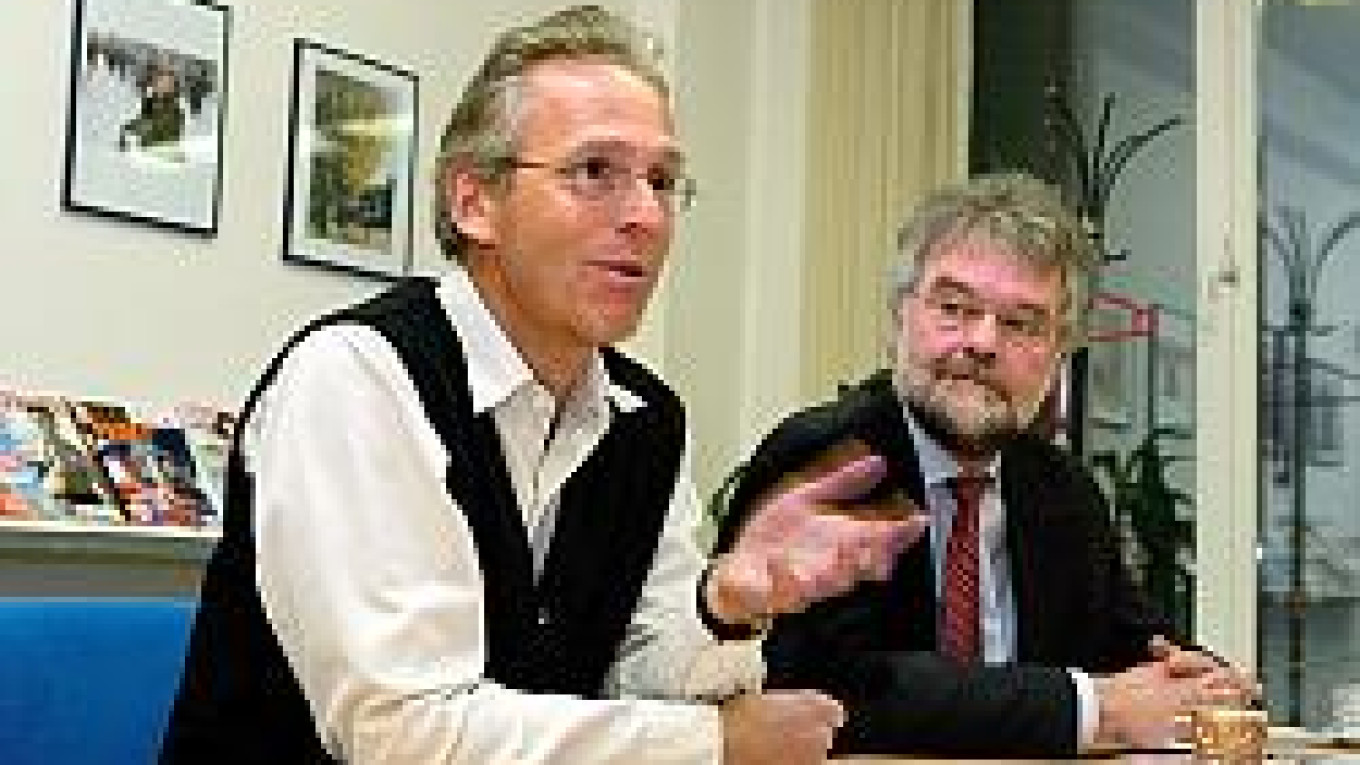If approved by anti-monopoly authorities and completed in the second quarter, as the companies expect, the deal will be the largest in Russian publishing history
The magazine division of Helsinki-based SanomaWSOY Group, whose titles range from the Dutch version of Playboy to the Bulgarian version of Cosmopolitan, called the acquisition of Independent Media, which also publishes The Moscow Times and Vedomosti newspapers, a perfect fit with the company's plans to expand in the former Soviet Union.
"The growth perspectives on this market are unlimited," said Koos Guis, CEO of Amsterdam-based Sanoma Magazines International, which will become the sole shareholder of Independent Media.
Fueled mainly by the growing popularity of glossy magazines such as Cosmopolitan, FHM and Men's Health, Independent Media's revenues have grown an average of 25 percent over the last three years, hitting $92 million in 2004.
Sanoma Group posted sales of $3.25 billion last year, about a third of which came from its magazine division.
Guis said Sanoma does not plan to involve itself in the management of the company, and that Independent Media founder and CEO Derk Sauer will stay on for at least three years.
"We never ever interfere with the editorial policies of our publications," Guis said.
Guis was Sauer's boss at Dutch publisher VNU in 1989, when Sauer was sent to Moscow to launch an English-language weekly magazine called Moscow Magazine, which eventually failed. Sanoma later bought VNU.
"[Sanoma is] scrupulous about independence and transparency," Sauer said. "They only want to grow. The only purpose of this deal is that we all can strengthen our position on the market."
Sauer built Independent Media on the back of The Moscow Times, the first English-language daily in Moscow, which he launched in 1992. The company, privately held by Sauer and a handful of Dutch investors, now publishes more than 30 titles in Russia, Ukraine and Kazakhstan, and controls about a third of the ad market for print media in Russia.
"With its 52 million households, Russia offers great growth opportunities," Sanoma Group president Hannu Syrjaenen said in a statement.
Independent Media plans to expand its magazine business throughout the former Soviet Union, although Guis said Belarus would be off limits due to the nature of its "political regime." Guis and Sauer also said the company plans to launch new newspaper titles, but declined to go into detail. Weekly, nonpolitical magazines are also on the drawing board, they said.
Independent Media's three existing newspapers, The Moscow Times, The St. Petersburg Times, and business daily Vedomosti, which Independent Media owns jointly with the Financial Times and the Wall Street Journal, will remain key parts of the business, Guis said.
Guis said he had met representatives of both publications, "and they welcomed us."
Independent Media was thought to have been looking for a strategic partner since at least November, when it announced it had bought back a 35 percent stake in the company that it sold the previous year to Prof-Media, a subsidiary of billionaire Vladimir Potanin's Interros holding company.
Interros paid an estimated $35 million for the stake in March 2003 and sold it sometime last year for an estimated $45 million. Neither side explained the reason for the separation.
Independent Media has had at least two other outside shareholders in the past. VNU, the Dutch media group, owned 35 percent of the company between 1997 and 2001, when Sauer and his partner bought it back. And at one point in that period jailed Yukos founder Mikhail Khodorkovsky's holding company, Group Menatep, owned about 10 percent.
In a departure from what is quickly becoming tradition in Russia, neither Independent Media nor Sanoma sought the blessing of the Kremlin -- known to occasionally meddle in the editorial affairs of major newspapers -- for the deal.
Media analysts polled Wednesday said that, if true, such an omission could come back to haunt the company.
"Since all deals involving foreigners have to be sanctioned, that means that either it had to be agreed with the Kremlin or there could be problems in the future," said Anna Kachkayeva, media analyst at Radio Liberty.
Nonetheless, media-watchers welcomed the arrival of the Nordic region's largest publisher.
"Scandinavian media have very strong traditions and superb journalistic standards," said Manana Aslamazyan, executive director of Internews, an international nonprofit organization supporting independent media.
"The acquisition is a solid confirmation of healthy trends in printed media," Kachkayeva said.
A Message from The Moscow Times:
Dear readers,
We are facing unprecedented challenges. Russia's Prosecutor General's Office has designated The Moscow Times as an "undesirable" organization, criminalizing our work and putting our staff at risk of prosecution. This follows our earlier unjust labeling as a "foreign agent."
These actions are direct attempts to silence independent journalism in Russia. The authorities claim our work "discredits the decisions of the Russian leadership." We see things differently: we strive to provide accurate, unbiased reporting on Russia.
We, the journalists of The Moscow Times, refuse to be silenced. But to continue our work, we need your help.
Your support, no matter how small, makes a world of difference. If you can, please support us monthly starting from just $2. It's quick to set up, and every contribution makes a significant impact.
By supporting The Moscow Times, you're defending open, independent journalism in the face of repression. Thank you for standing with us.
Remind me later.


